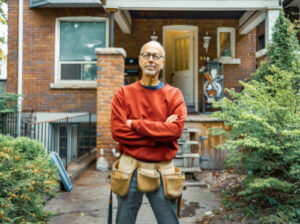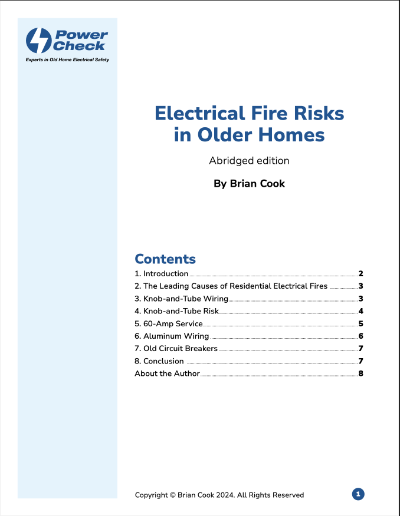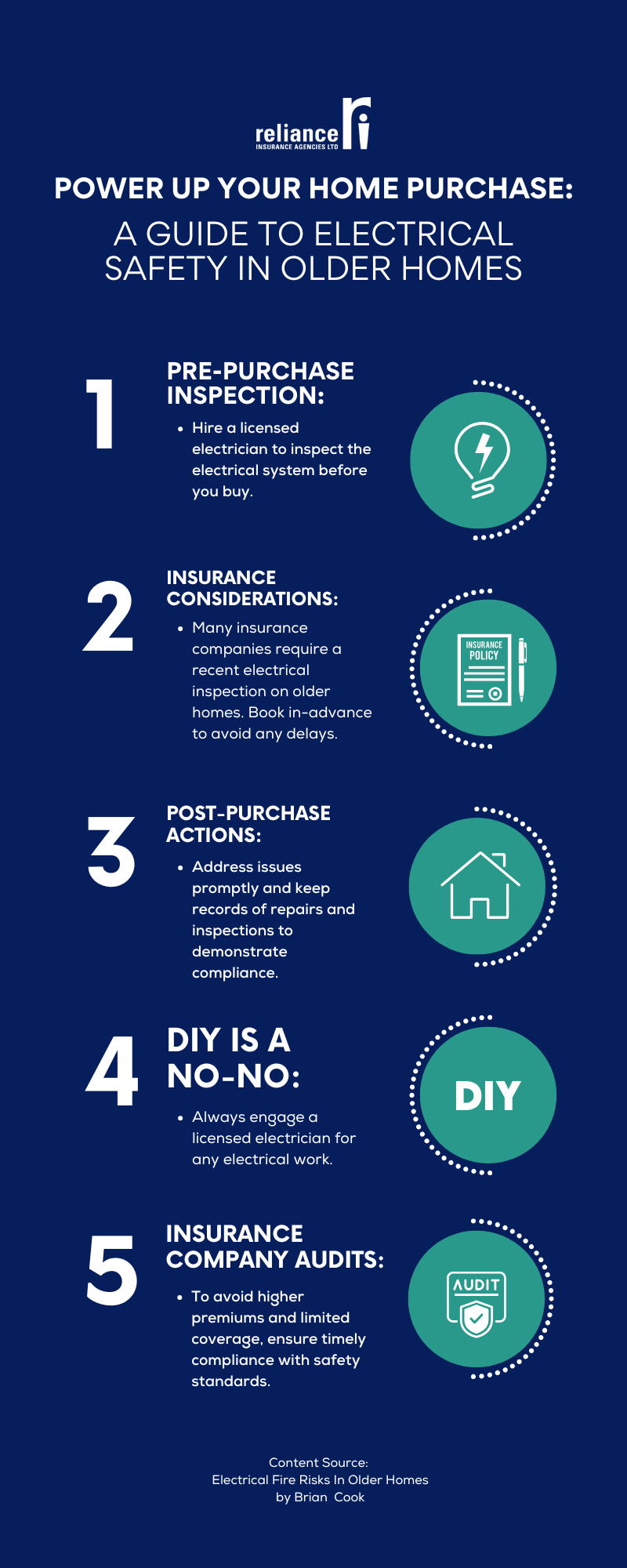“Knob-and-tube” wiring, “60-amp electrical services” and “fuse boxes” are different types of outdated electrical systems found in older buildings.

Insurance companies often “red flag” them due to significant electrical fire risks in older homes. Interestingly though, these electrical wiring components are not typically the root cause of electrical fires, nor are they the best indicators of electrical hazards in a home. An original electrical system, if well-maintained, can remain in good condition despite its age. By zeroing in on vintage wiring and fuse boxes as the main culprits, we frequently overlook the genuine risks lurking elsewhere. Electrical upgrades completed by unlicensed handymen and DIY homeowners.
One of the leading causes of electrical fires in homes is due to inexperienced homeowners or otherwise unqualified individuals making changes to an original electrical system that are not in compliance with the electrical code. Adding secondary suites have become a common solution to relieve the burden of rising housing prices in British Columbia and basements are often converted for this purpose.
Residential fires in BC
2004-2017
- An average of 2166 residential fire incidents per year
- Resulting in 150 casualties (deaths & injuries)
- 9.4% were electrical fires
- Damages: In excess of $150 million
2022
- There were 2,433 residential structure fires reported
- 49 deaths
- ~10% stemmed from an electrical fault
2023
- There were 3549 residential structure fires reported
- 9.4% from mechanical/electrical failure or malfunction
- 17% of fires, act of omission not determined
- 74% of fires from 1, 2, 3 story buildings (32%, 30%, 12% respectively)
How can these factors impact your insurance?
Firstly, have a licensed electrician inspect the electrical system of any older home (1900-1975) you’re considering purchasing. If the inspection reveals necessary safety and compliance upgrades, request an estimate and factor it into your offer.
If you decide to purchase the home, another factor to consider is that insurance companies will likely ask for an electrical inspection before they will offer insurance. This can slow down the closing process and halt financing until insurance can be obtained as having insurance is a condition of the sales process. Sudden delays are common and can add unnecessary stress.
Once an inspection has been completed, address any areas of concern right away and keep the receipts and report to prove the work has been done.
Do not attempt to upgrade/repair electrical systems without hiring a licensed electrician.

Note that insurance companies have internal audits, which often will prompt an inspection on a home they have insured for many years, but they do not have a record of an inspection on file. This standard practice; however, can unfortunately pressure homeowners into rushing to meet insurance compliance. Not acting could mean your broker may have to move you to the “high risk” market – which mean higher premiums and less coverage – nobody wants that.
Older homes that have limited upgrades, will cost more in premium.





Reliance Insurance proudly serves
Burnaby and the Vancouver area